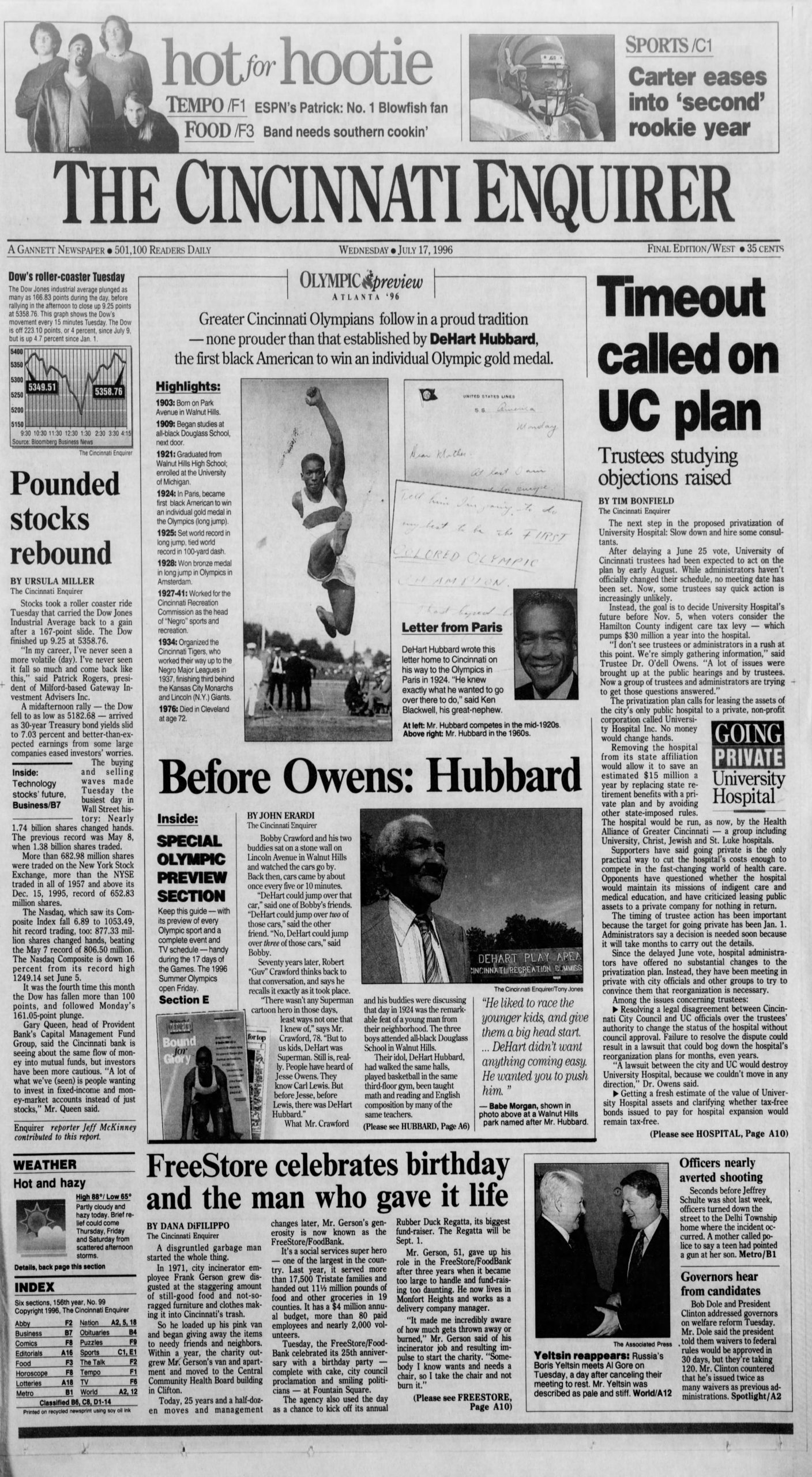
WASHINGTON – Refugee advocates and war veterans are reeling. Members of Congress are frustrated. European allies are fuming.
And now, 13 American families are grieving sons and daughters who were killed in the final, chaotic days of the 20-year war in Afghanistan.
Thursday's deadly suicide attack, which also killed at least 169 Afghans, marked a grim coda to America's so-called "forever war" and fueled new questions about President Joe Biden's handling of the U.S. military withdrawal.
Biden came to office steeped in foreign policy and promising to restore America's leadership on the world stage. He pledged to bring competence and expertise to U.S. policy after four turbulent years of Donald Trump's presidency. In Afghanistan, he said the drawdown would be "secure and orderly," prioritizing the safety of U.S. troops.
Instead, Americans have witnessed searing images of desperate Afghans scaling the walls of the airport in Kabul and clinging to military planes amid a frantic, deadly evacuation effort. They've seen Taliban fighters sweep back into power two decades after being routed by U.S. forces. And they endured fresh U.S. casualties at the hands of terrorists during a high-risk scramble to screen those seeking to flee the Taliban's brutal rule.
Biden and his allies have said the U.S. withdrawal from Afghanistan would always be difficult, and the president has forcefully defended his decision to end the war. He said the lightening-speed collapse of Afghanistan's security forces, despite 20 years and $80 billion of U.S.-led training and equipment, only confirmed the futility of a conflict that should have ended long ago.
"It is messy," Biden conceded in remarks to reporters last week. But, he added, "I have never been of the view that we should be sacrificing American lives to try to establish a democratic government in Afghanistan – a country that has never once in its entire history been a united country and is made up ... of different tribes who have never, ever, ever gotten along with one another."

The current firestorm, however, erupted over Biden's execution of the U.S. withdrawal – not necessarily his decision to end the war.
"Although it is clear to me that we could not continue to put American servicemembers in danger for an unwinnable war, I also believe that the evacuation process appears to have been egregiously mishandled," Rep. Susan Wild, a Pennsylvania Democrat, said in a statement posted on Twitter Thursday.
"We need answers and accountability regarding the cascading failures that led us to this moment. Our troops deserve nothing less than a complete and unvarnished truth," Wild said.
Refugee advocates were 'screaming from the rooftops'
It may take months to provide that full accounting, and the final hours of the U.S. withdrawal will be pivotal in determining the scope of the U.S. miscalculation. But some missteps are already clear, including an apparent intelligence lapse, a laser focus on protecting U.S. troops over evacuating American citizens and Afghan allies, and a lack of coordination with European allies, who feel betrayed by the speedy American exit.
Biden and his advisers have said no one at the Pentagon or in the U.S. intelligence community predicted that Afghan security forces would fall so quickly and with so little resistance.

"Not this quickly. Not even close," Biden told ABC News during an Aug. 19 interview.
Assuming the U.S. had several months – or longer – before a Taliban takeover, the Biden administration made protecting U.S. troops the cornerstone of its withdrawal plan, not evacuating American citizens or at-risk Afghans.
"Our military commanders advised me that once I made the decision to end the war, we needed to move swiftly to conduct the main elements of the drawdown," the president said on July 8. "In this context, speed is safety."
But by then, scores of veterans groups, refugee advocates and women's rights organizations had already been pleading with the administration to orchestrate a mass evacuation. They feared that Afghans who worked for the U.S. military during the war or who advocated for women's rights and other democratic freedoms, would be targeted by the Taliban.
‘They will slaughter us’: Afghans who worked with US beg for visas as troop withdrawal looms
Krish O’Mara Vignarajah, president and CEO of the Lutheran Immigration and Refugee Service, said she and others were "screaming from the rooftops for months" and warning the White House of an impending crisis. The Biden administration wasted precious time trying to negotiate agreements with third countries to accept the potential refugees while the State Department vetted visa applications, she said in an interview shortly after the Taliban entered Kabul.
During a meeting at the White House in June, Afghanistan's then-president, Ashraf Ghani, asked Biden to consider the optics of a mass evacuation, according to an administration official who was not authorized to discuss the conversation publicly. The Afghan leader said if the U.S. started airlifting Afghans out of the country, it would signal a lack of confidence in the Afghan government and the security forces’ ability to secure their country, this source said.

For his part, Biden asked Ghani to create a realistic military strategy that would allow the Afghan security forces to consolidate, regroup and to take the fight back to the Taliban, the administration official said. Biden also asked Ghani and his political rival, Abdullah Abdullah, who also attended the meeting, to come together in a demonstration of unity and leadership.
Neither of those things happened. And Ghani quietly fled his country as the Taliban entered Kabul, another shocking development the White House did not anticipate.
More: Why did Afghan President Ashraf Ghani leave? 'To prevent a flood of bloodshed'
Aaron David Miller, a senior fellow at the Carnegie Endowment for International Peace and former State Department official during multiple administrations, said the Biden administration failed to plan for contingencies that no one foresaw – in Washington or European capitals. That failure, he said, is rooted in two decades of falsehoods and fantasies about the war.
"We sort of convinced ourselves that we had made all of this progress with building up the Afghan government, creating a coherent military that was going to fight for a kleptocratic, corrupt Afghan government, which obviously was not the case," he said.
Miller said a mass evacuation earlier this year could have unleashed "the very thing you want to stop," including widespread panic and the horrific rush to evacuate that has unfolded over the last two weeks.
"The only option was a messy, messy, disorderly withdrawal, or alternatively, not withdrawing," he said. "Afghanistan was clearly the riskiest and boldest decision in (Biden's) presidency so far."
'There were just blinders on'
But lawmakers and national security experts say the weakness of the Afghan security forces had been clear for years, and their collapse should not have come as a surprise.
"I don't think anybody was under any delusions about that," said Kirsten Fontenrose, a national security adviser during the Trump administration and now director of the Atlantic Council's Scowcroft Middle East Security Initiative. "I'm sure that was made very clear to the president."
She said lawmakers had been pressing the Biden administration for months to detail its plan for dealing with the government's collapse and the evacuation of Afghan allies that would be required when that happened.
"According to the people I've spoken with, the administration repeatedly told them, 'We've got this. ... The withdrawal's not gonna be that big of a deal, we're still going to have an embassy in place that will handle things, it's going to go smoothly'," she said. "There were just blinders on."
Bradley Bowman, senior director of the Center on Military and Political Power at the Foundation for Defense of Democracies, a hawkish Washington-based think tank, said the Pentagon should have made contingency plans to slow the Taliban's advance and set up multiple evacuation points, "especially ones not in the middle of Kabul."

"Did that contingency plan exist in the Pentagon, and why the heck was it not implemented? Fundamental questions," he said during a briefing for reporters last week.
White House Press Secretary Jen Psaki said all the Monday-morning quarterbacking fails to take into account the resources and risks involved in executing alternative scenarios, including a mass evacuation that she said would have required a major troop surge and could have ignited the same terrorist violence that unfolded Thursday.
"It is easy to throw stones or be a critic from the outside," Psaki said at a briefing on Friday. "It is harder to be in the arena and make difficult decisions."
Biden says the Taliban are 'not good guys.' So why is the U.S. cooperating with them against ISIS-K?
Ex-Marine Stuart Scheller: 'Did any of you throw your rank on the table?'
One of the most gripping rebukes of the U.S. withdrawal has come from a lieutenant colonel in the Marines who said he and his fellow service members put their lives on the line and are now wondering if it was all for naught.
"People are upset because their senior leaders let them down and none of them are raising their hands and accepting accountability or saying, 'We messed this up,'" Stuart Scheller said in an Aug. 26 Facebook video that has garnered widespread attention – including that of his commanders, who have since relieved him of his duties for "loss of trust and confidence,” according to multiple media outlets.
"Did any of you throw your rank on the table and say, 'Hey, it's a bad idea to evacuate Bagram Airfield, the strategic air base, before we evacuate everyone'? Did anyone do that?" he asked. "I've got battalion commander friends right now ... they're saying, you know, wondering if all the lives were lost and if it was in vain all those, all those people that we've lost over the last 20 years."
American military troops left Bagram Airfield, which served as the hub of the American-led war against al-Qaida and the Taliban for nearly two decades, in early July, handing the strategic base over to Afghan security forces.
But Afghan officials said they didn't learn of the U.S. departure until hours later. Before the Afghan army could take control of the airfield, looters accessed the compound and ransacked barracks, the Associated Press reported in July.
Biden defended the decision to leave Bagram when asked on Thursday if it was a tactical mistake. He said military leaders concluded the base did not offer "much value added" and told him it was wiser to focus on Kabul. "And so, I followed that recommendation," he said.
But the surprise handover of Bagram highlighted what many saw as a faster U.S. exit than anticipated, particularly among America's NATO allies.
Fontenrose said France, Germany and other European allies did not expect Biden to reverse course and stay in Afghanistan. But she said leaders in those countries were taken by surprise at the speed of the U.S. military withdrawal.
"They didn't have enough warning to get their people out," she said, adding that a European friend described the reaction as "incandescent rage."
How did Afghanistan end this way? The finger-pointing begins.
That rage was on display in the United Kingdom's House of Commons earlier this month, when Tom Tugendhat, a member of Parliament who also served in Afghanistan, blasted Biden and said the U.S. withdrawal should serve as a "harsh lesson" about Europe's dependence on America.
"We can set out a vision, a clear articulated vision, for reinvigorating a European-NATO partnership, to make sure we are not dependent on a single ally, on the decision of a single leader," he said.
Fontenrose said Europe is unlikely to turn away from the U.S., but "we won't be able to go asking them for favors anytime soon."
"Globally, this will cast the cloud," she said, and allies will ask whether the U.S. is "a smart partner or whether we are isolationist and in decline."
But Miller said the international impact of the current crisis is overstated, and European leaders should be more worried about whether the U.S. withdrawal will hurt Biden's domestic prospects for reelection – paving the way for the return of Trump or one of his political acolytes who embraces his "America First" mantra.
Miller said the gut-wrenching images of hundreds of thousands of Afghans desperately seeking to be evacuated "will forever be seared" into the public consciousness and will be part of Biden's legacy.
"That week at the Kabul airport was a defining moment in the visual imagery of the Biden presidency. Nothing can take those pictures away," he said.
But he said the outrage over the withdrawal needs to be considered in the full context of a war marked by years of mistakes and miscalculations.
"Three previous administrations knowingly misled (the American public) with aspirations and promises they knew could never be fulfilled with respect to winning the war and creating a secure, coherent, prosperous Afghan state," he said.
Any debate about "broken promises and dysfunction" should also focus on previous presidents who oversaw a war that killed 2,400 American service members, grievously wounded thousands more, cost $2 trillion and tarnished American credibility, Miller said.
The iconic images of Afghans swarming American military planes should be emblematic "of the entire failure of the Afghanistan enterprise," he said.









